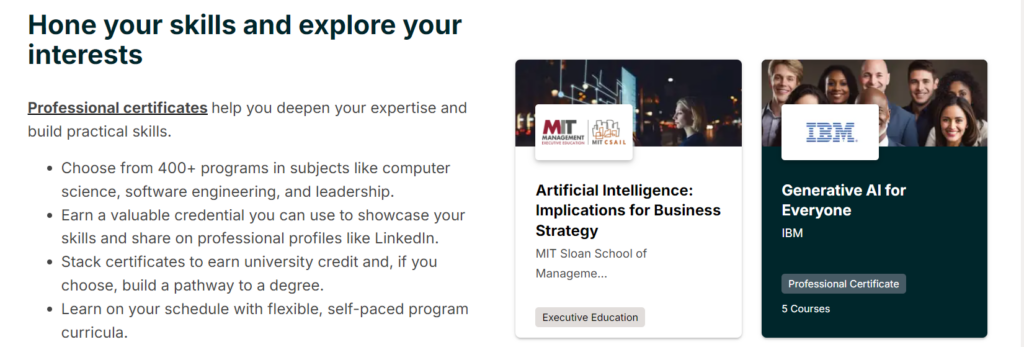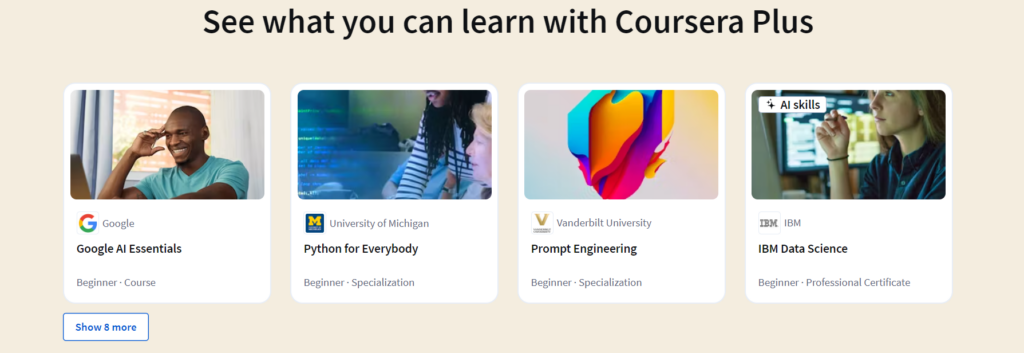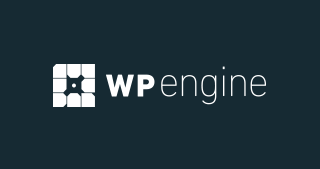In the fast-evolving landscape of online education, Coursera and edX are two of the most popular platforms, offering access to high-quality courses from top universities and institutions worldwide.
Both platforms provide learners with the flexibility to acquire new skills, further their education, or even earn degrees, without the traditional limitations of time and location.
However, choosing between Coursera and edX can be challenging due to their unique features, pricing structures, and course offerings. In this detailed comparison, we will explore both platforms to help you decide which one best suits your learning goals.
Coursera and edX are widely regarded as pioneers in the field of online learning. Both platforms were founded by prestigious universities, and they offer a broad range of courses across various subjects.
Coursera was founded in 2012 by two Stanford University professors, while edX was launched in the same year by Harvard University and MIT. These platforms aim to make education accessible to anyone, anywhere, and have since grown to serve millions of learners globally.
While both platforms share a similar mission, they differ in terms of course offerings, features, pricing, and certification options. Whether you’re looking to develop new skills for your career or pursue a personal interest, understanding the strengths and weaknesses of each platform will help you make an informed decision.
Overview of Coursera and edX
Overview of Coursera

Coursera is known for its extensive course catalog, offering thousands of courses in subjects like data science, business, computer science, and personal development.
It partners with leading universities and organizations to provide learners with the opportunity to earn certificates and degrees.
Coursera also offers specializations, which are series of courses designed to help learners gain deep expertise in a particular field. Coursera’s professional certificates and full-fledged degrees set it apart as a leader in online learning.
Overview of edX

edX, on the other hand, also boasts a vast selection of courses from world-class institutions, including Harvard, MIT, Berkeley, and others.
edX is notable for its commitment to open learning, providing a wide range of free courses with the option to pay for certification.
Additionally, edX is known for its MicroMasters and Professional Certificates, which offer learners an opportunity to gain advanced knowledge and skills. edX’s nonprofit status also aligns with its mission to democratize education on a global scale.
Features of Coursera and edX
Features of Coursera

Coursera’s platform offers a number of standout features that make it attractive to a wide range of learners. These include:
1. Wide Range of Course Offerings
Coursera has one of the largest selections of courses available in the online learning world. From machine learning to creative writing, the platform offers over 7,000 courses across various disciplines.
The courses are designed in collaboration with top universities and industry leaders like Google, IBM, and Yale.
2. Professional Certificates and Degrees
Coursera offers professional certificates and even full degrees, such as Master’s and Bachelor’s degrees in fields like business, computer science, and public health.
These programs are often more affordable and flexible than traditional degree programs, allowing students to study at their own pace.
3. Specializations and Guided Projects
Coursera’s specializations are collections of courses that provide deep dives into specific topics. For example, learners can take a series of courses on data science or business analytics.
Guided projects are also available, offering hands-on learning experiences where learners can work on real-world projects.
4. Mobile App and Offline Learning
Coursera’s mobile app allows users to download courses and access them offline, making learning accessible anytime, anywhere. The app also provides a user-friendly experience with features like reminders, quizzes, and progress tracking.
5. Flexible Learning Options

Learners can choose between self-paced courses or more structured formats that have set deadlines. This flexibility allows users to fit learning around their personal schedules.
Features of edX

edX also provides a range of features that appeal to learners looking for high-quality, flexible education. Some of the key features include:
1. University Partnerships and Open Courses
edX collaborates with over 160 prestigious institutions worldwide, including Harvard, MIT, and Berkeley. Many of edX’s courses are open and free to audit, making education accessible to people from all walks of life. However, learners need to pay a fee if they want to earn a verified certificate.
2. MicroMasters Programs
One of edX’s unique offerings is the MicroMasters program, which is a series of graduate-level courses designed to provide in-depth knowledge in a particular field.
These programs often count toward credits in full Master’s degree programs, providing a pathway to more advanced education.
3. Professional Certificates
In addition to MicroMasters, edX offers Professional Certificates, which are designed for working professionals looking to upskill or reskill in fields like data science, AI, and cybersecurity.
These certificates are often recognized by employers as valuable credentials.
4. Self-Paced and Instructor-Led Courses
Like Coursera, edX provides both self-paced and instructor-led course options. This allows learners to choose a format that suits their personal preferences and schedules.
Instructor-led courses often include more structured deadlines, while self-paced courses provide greater flexibility.
5. edX for Business

edX also offers corporate training programs through edX for Business. These programs are designed to help organizations train their employees in key skills like leadership, data science, and digital marketing.
Companies can provide access to edX’s course catalog for employees to continue their professional development.
Pricing of Coursera and edX
Pricing is one of the key differences between Coursera and edX. While both platforms offer free courses, there are additional costs for learners who want to earn certificates or degrees.
Coursera Pricing

- Free Courses: Many Coursera courses are free to audit, meaning learners can access course materials without a fee. However, these free versions do not include graded assignments or certificates.
- Certificates: For learners seeking certificates, the cost ranges from $39 to $99 per course, depending on the course content and institution.
- Degrees: Coursera offers fully accredited degree programs, such as Master’s degrees, which cost anywhere from $10,000 to $25,000, depending on the program and university.
- Subscription Plans: Coursera Plus is a subscription plan that offers access to over 7,000 courses for a flat annual fee of $399.
edX Pricing
- Free Courses: Like Coursera, edX allows learners to audit many of its courses for free. However, graded assignments and certificates are only available to paying students.
- Certificates: Verified certificates for individual courses typically cost between $50 and $300, depending on the course and institution.
- MicroMasters: MicroMasters programs typically cost between $600 and $1,500. These are designed to offer graduate-level education at a fraction of the cost of a traditional degree.
- Degrees: edX also offers full degree programs, with prices ranging from $10,000 to $25,000, depending on the institution and field of study.
FAQs
What types of courses are offered by Coursera and edX?
Coursera offers courses in a wide variety of subjects, while edX focuses on academic and professional fields.
Are there free courses available on Coursera and edX?
Yes, both platforms offer free courses, but certificates are available for a fee.
Can I earn a degree on Coursera and edX?
Yes, both platforms offer fully accredited online degrees.
Do Coursera and edX offer financial aid?
Yes, both platforms offer financial aid and scholarships for eligible learners.
Which platform is better for professional certificates?
Both platforms are strong, but Coursera offers more industry-recognized certificates, while edX focuses on academic and professional upskilling.
Conclusion
When it comes to choosing between Coursera and edX, the decision hinges on your specific learning goals, budget, and the type of credential you seek.
Both platforms are exceptional in their offerings, providing access to courses from top universities and institutions around the world. However, each has its unique strengths and areas of focus.
Coursera excels in providing a wide variety of courses, specializations, and professional certificates, often in partnership with industry giants like Google, IBM, and Meta.
If your primary goal is to acquire skills for career advancement, job placement, or to pursue an industry-recognized certification, Coursera’s professional certificates and degrees make it a top choice.
Additionally, Coursera’s structured programs like Specializations and MasterTracks, as well as its flexibility with self-paced learning, make it attractive for those juggling personal and professional commitments.
Coursera’s pricing structure is also well-suited for learners looking to invest in long-term education through its subscription plan, Coursera Plus, which provides access to thousands of courses for a flat annual fee.
On the other hand, edX is a strong contender for learners who are seeking academic rigor and specialization. Its MicroMasters and Professional Certificates offer a more formal, graduate-level education experience, often at a fraction of the cost of traditional degrees.
edX also stands out for its open access model, allowing learners to audit courses for free, with the option to pay for certificates if needed.
For those looking to transition into higher education or gain credits toward a degree, edX’s partnerships with prestigious institutions like Harvard, MIT, and Berkeley provide a clear pathway.
Moreover, edX’s commitment to nonprofit education and its mission to democratize learning resonates with learners who prioritize open access and inclusivity.
In terms of pricing, Coursera is slightly more structured, with its focus on paid professional certificates and degree programs, while edX maintains a more flexible approach, allowing free access to many courses with optional verified certificates.
Coursera’s degree programs tend to be more comprehensive and career-focused, whereas edX offers a solid blend of professional certificates and MicroMasters programs that can lead to graduate-level credit.
Ultimately, if you’re seeking career advancement, professional certification, or a full degree with the backing of industry-recognized partners, Coursera might be the better fit.
If your interest lies in academic learning, gaining graduate-level knowledge, or exploring open courses from world-renowned universities, edX would likely be more aligned with your goals.
Both platforms represent the future of online education, offering flexibility, affordability, and access to world-class knowledge.
The choice between Coursera and edX will ultimately depend on your personal educational objectives, how you want to use your credentials, and the specific skills or qualifications you aim to acquire.



